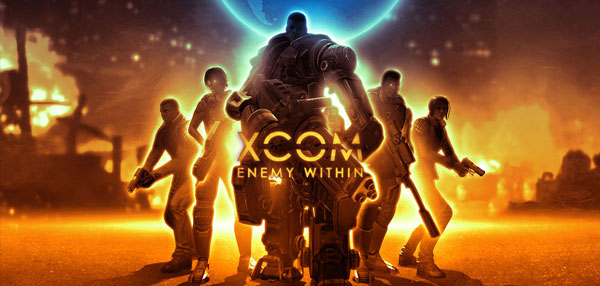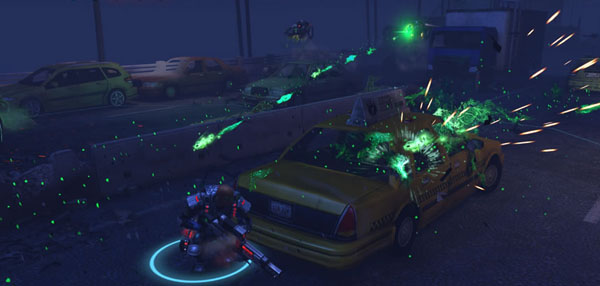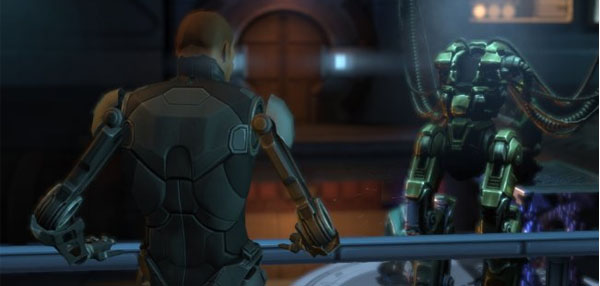XCOM: Enemy Unknown was commonly regarded as one of the best games of 2012, and I can’t disagree with that. Played on Ironman mode it was tense and emotional as each mission could spell death for one of your carefully nurtured and unique soldiers. Indeed, on a number of occasions it did. I didn’t feel guilty about that though, I always felt they had the best chance I could give them, even if it was only by luck that none died to my bad judgement, only by unfortunate circumstance or bad luck. The expansion pack, Enemy Within was harder, tenser, and did make me feel guilty though. Terribly guilty.
Let me return to the premise which probably made XCOM as critically acclaimed as it was. The soldier customisation made your troops just different enough to allow you to identify them as individuals. Their nationality, gender, name, and appearance all vaguely meshed together to be convincing enough to humanise them. Some people renamed them after their friends. Ironman mode only allowed the player save on exit and no reloads, a permadeath mode. Both of these features combined made every mission a careful dance of overlapping fire arcs and section assault, and made every corner, every door breach, every enemy shot, grimacingly tense. It was hard. Enemy Within added tougher and smarter enemies. Several times I found myself in a last stand, my squad desperately trying to return enough fire to thin the enemy ranks before the hail of incoming fire stripped away their cover. Knowing that if my best squad died here and the B team had to take the fight, I would probably lose the game.
On a few occasions, in both games but notably more in Enemy Within, I felt gutted when one of my best troops died. It left me staring blankly at the screen, mentally replaying the death as if it could rewind it. It was a horror borne from the loss of a well developed asset though – remember that this is only a game, and even with the personalisation of the character system I had only vaguely anthropomorphisised them. Occasionally I would look at the memorial wall in the barracks and try to remember where I lost each of the soldiers. I felt a mild pang of sadness that in all but a couple of cases I couldn’t, but I was almost willing myself to do so, to feel submerged in the game. Even the ending was bitter sweet and guilt inducing. This was a game designed to give the player an emotional attachment to the pieces. None of this is what I remember most though.
The thing which brought my feelings to the surface, which fuelled my imagination’s natural desire to assign humanity to these models and stats, was played out almost entirely off the battlefield. Both XCOM and its expansion addressed transhumanism, adapting our bodies to overcome the alien invaders with their own technology. Latent psychic potential was developed and artificially enhanced to create super-soldiers. Enemy Within expanded on this by allowing you to integrate alien DNA and create mutant hybrids of your troops, to which its name is a dual reference. The psionics and mutants were superhuman.
The last form of modification was to use alien technology to create mechanised soldiers, fused into their hulking robot suits to turn them into walking tanks. The process required surgery to amputate their limbs so that they could wield the huge robotic ones of their suits – in order to enhance them you had to turn them into quadriplegics. That was a hard pill to swallow for me. Had they been badly injured soldiers, combat amputees, I would have relished giving them the opportunity to become stronger. But these were healthy soldiers, rookies who joined to fight for humanity, who had barely seen combat. I elected two as a trial.
I regretted it straight away. When not in their combat suits, in the loadout screen, the Mec soldiers have robotic limbs. These aren’t bulky, intimidating looking approximations of human limbs, they’re spindly and utilitarian. Next to their unmodified colleagues they already looked atrophied. I felt bad for mutilating them. The others types of soldier were added to, nothing was taken away, but these I had permanently maimed. When the war was over, when they returned to civilian life they would do so on prosthetic legs. But they would also do it as heroes, mighty Mec troopers who helped win that war. Wouldn’t they?
In combat I found my Mec troopers to be cumbersome, overt, and tactically incompatible with my other soldiers. They were tanks in an infantry battle, and attracted so much fire that they were immediately relegated to a support role. Even there they were inferior to my enhanced snipers and heavies, who were safer under cover, more agile and more versatile. They took one mission and were relegated to barracks for the rest of the campaign. That was when the discomfort and regret turned to guilt. Bad enough that I had mutilated healthy soldiers, I had done it needlessly. XCOM‘s famous flair for emotional attachment had well and truly hit me, and it remains by far my strongest single impression. And the final insult? Upon returning to my save game many months later to refresh my memory I find my Ironman save mid-mission before the final encounter, so I can’t even recount their names.



